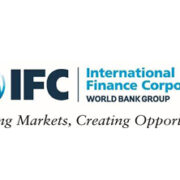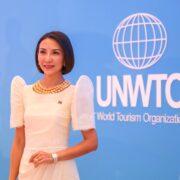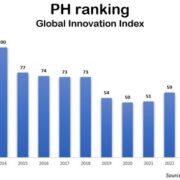Manila, Philippines —A new initiative will help mobilize private financing for more climate-friendly projects in the Philippines, with IFC launching the ‘30 by 30 Zero’ program that aims to help financial institutions, especially banks, better incorporate green finance strategies into their investment plans, reduce climate risks, and ultimately cut greenhouse-gas emissions (GHG).
Developed jointly by IFC and the World Bank, the program is funded by the International Climate Initiative (IKI), government of Germany, and brings together key stakeholders—government and regulators, international finance institutions and commercial banks, and real sector partners—to mobilize support for the shift toward a low carbon economy. The goal is to work with financial institutions to strengthen their role as aggregators of climate financing by growing their climate-related lending to 30 percent of total portfolio (on average) with near zero coal exposure by 2030. The program is currently active in the Philippines, Egypt, South Africa and Mexico.
Kick-starting the program in the Philippines, IFC partnered with CARD SME Bank, one of the largest microfinance organizations in the country, to boost their capacity to finance climate-smart agricultural solutions for farmers. Starting in October, the program is expected to reach over 3,000 farmers across the country.
IFC, along with the Berlin-based and globally renowned Renewables Academy (RENAC), will be offering scholarships to build capacity among financial institutions that are interested in green energy and climate finance. The first batch of scholarships are likely to be offered in November 2022.
IFC has been a major driver in developing the climate-themed bond market in the Philippines through its investments in innovative landmark issuances. In 2017, IFC invested $150 million in BDO Unibank Inc.— the first green bond issued by a financial institution in the country. This was followed by several first green bond issuances of issuers that were also supported by IFC in 2018 and 2019. In April 2022, IFC supported BDO’s first blue bond to help tackle marine pollution and preserve clean water resources. The 30×30 program also aims to draw more issuers with climate-themed bond offerings to the market.
“Achieving the country’s climate targets requires massive financing, which cannot be met by the public sector alone. Private financing is therefore crucial,” said Jean-Marc Arbogast, IFC Country Manager for the Philippines. “The financial sector, especially commercial banks, can play a key role in greening the economy by addressing climate-related risks, promoting sustainable development, and decarbonizing industries through financing.”
On September 14, IFC will host a Philippine Climate Forum, bringing together global and industry experts to promote green lending and climate investment opportunities in the country.
About IFC
IFC—a member of the World Bank Group—is the largest global development institution focused on the private sector in emerging markets. We work in more than 100 countries, using our capital, expertise, and influence to create markets and opportunities in developing countries. In fiscal year 2022, IFC committed a record $32.8 billion to private companies and financial institutions in developing countries, leveraging the power of the private sector to end extreme poverty and boost shared prosperity as economies grapple with the impacts of global compounding crises. For more information, visit www.ifc.org
Stay Connected
www.instagram.com/ifc_org






